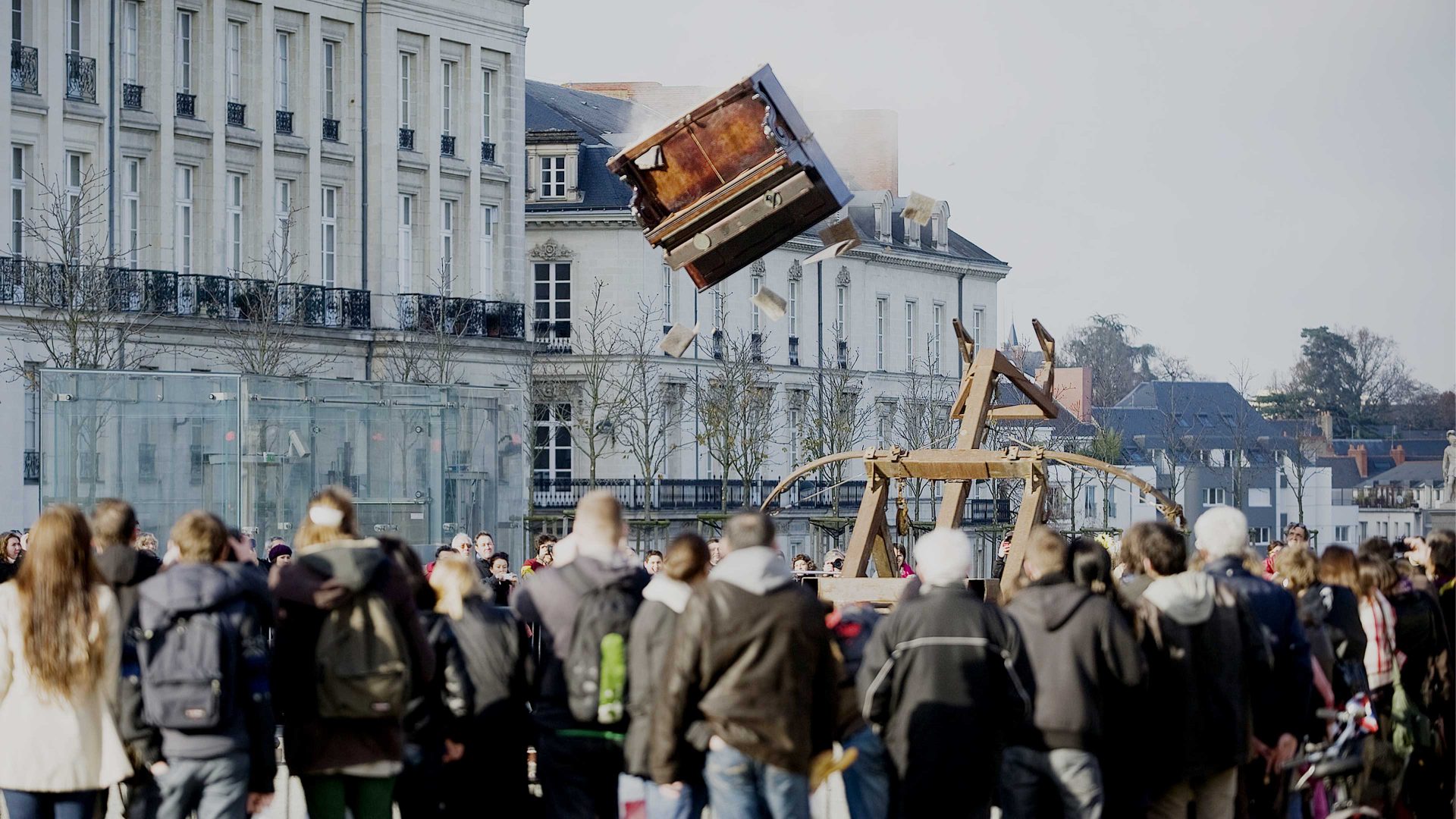The thing you have to understand about Nantes, the French city I am from, is that its unofficial motto is: “Well, I don’t see why not”.
That’s what I call it anyway. When I was growing up it seemed normal. I remember being 13 and seeing an appeal, from an arts company partly funded by the city, for grand pianos that people no longer needed. Their idea was simple: they had built a piano catapult and wanted to see what would happen if they chucked a piano from the piano catapult. Some people duly donated their unwanted instruments and I, like many others, went to watch the experiment in action.
It was very brief, very loud and great fun. They have done it several other times since then: a video can helpfully be found on YouTube. There may have been some grander purpose at play but, really, I do think they just had a silly idea and wanted to try it out.
Nantes’s eccentricities don’t stop there; a few Christmasses ago, I went home to find that Place Royale, one of our main squares, had been filled with hundreds of lifesize statues. Another time, the square featured a large ship “crashing” into the fountain. Last summer, I had a cocktail in a tiki bar, which had been installed in the parking lot in front of the airport.
How did all these things come into being? Again, it’s hard not to picture an eccentric aide walking into the mayor’s office, pitching their madcap idea, and being told that “well, I don’t see why not”. It’s a delight.
It also goes beyond charming whimsy. A few weeks ago, I walked to my grandparents’ flat on Christmas Eve. The short hop from the tramway stop usually involves crossing a small and depressing park, but this time I noticed something. Was this..? Yes, they’d put a vegetable patch in the middle of it. Of course they had.
I read the sign and went online to find more information. “Paysages nourriciers” – “nurturing landscapes” – was, it turned out, first launched in the lockdown of 2020. It now features 25 “solidaire” vegetable patches, dotted across town.
In 2022, the city’s gardeners and volunteers managed to produce 19 tons of vegetables, most of which they gave away for free to 1,200 families in need. The rest of the produce was used to organise what they called “papote et popote” events, where anyone could turn up, cook, then chat away with their neighbours while eating.
It’s one of those projects that feels nearly too good to be true. People harmed by the cost of living crisis get free healthy food; people with too much time on their hands but no access to nature get to do some gardening and feel useful; lonely people can turn up and meet others from their area; residents across town benefit from walking past lovely vegetable patches. Somehow, everybody wins – even the people who moved out many years ago but still want to see their hometown doing well.
Still, it was a slightly bittersweet experience for me. I love London with all my heart, as I’ve written in this column countless times, but it doesn’t currently feel like a place in which something like “paysages nourriciers” could happen. Sadiq Khan has been a fundamentally decent mayor, but he just doesn’t strike me as a “well, I don’t see why not” kind of guy. If he is, he’s been hiding it well.
Then again, maybe it’s not his fault; Britain doesn’t really feel like a “well, I don’t see why not” kind of place at the moment. If anything, any attempt to make life more bearable by way of useful whimsy would probably get shot down as cosmopolitan nonsense.
Politics, especially on social media, has turned into a neverending contest to find out just how dour life ought to be. Any suggestion that everyone deserves some charm and sense of community in their life will be treated as unserious at best, and dangerously socialist at worst.
It is a depressing state of affairs, especially given the current state of the country. Heaven knows we could all do with some charm right now. I know I definitely could.
Who wants to help me grow some carrots?




